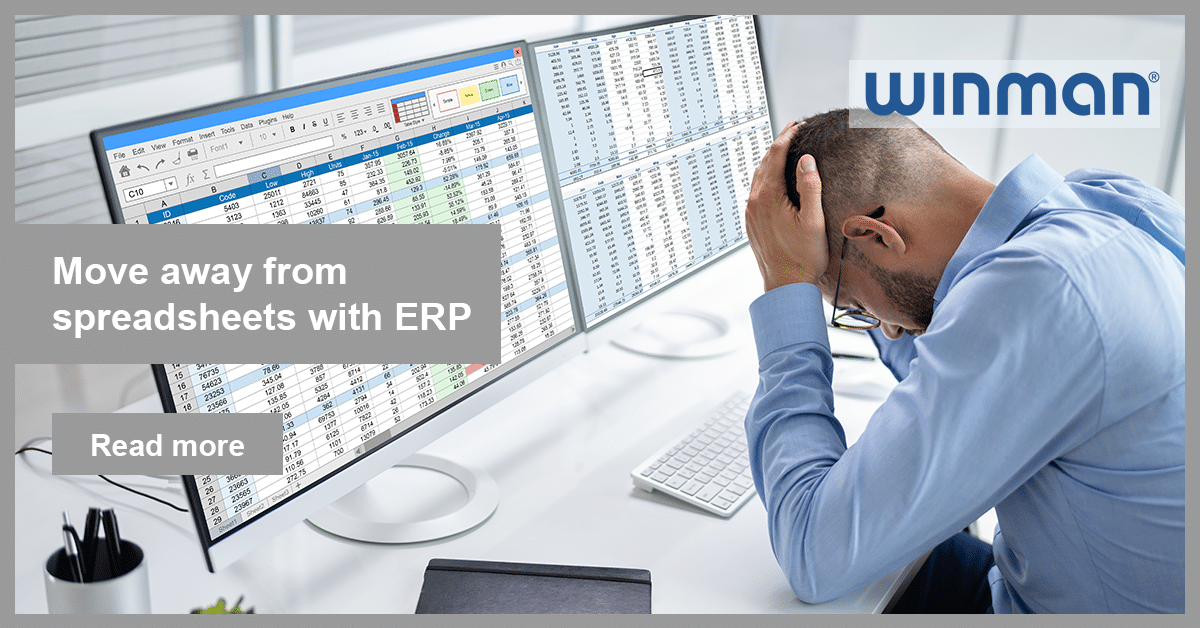Although Excel is a well-known and powerful software tool, it is not suitable for running a manufacturing business. One of theRelated content – BI main reasons is that the information is scattered across multiple locations and formats, making it difficult to obtain timely and meaningful business-critical information for making informed commercial decisions. Many companies rely on a combination of accounting systems with limited functionality, contact management software, spreadsheets, access databases, and manual processes to manage their operations.
A fully integrated Enterprise Resource Planning (ERP) system with a single database can solve this common problem.
ERP systems support workflows that allow for complex processes to be tracked in real-time, providing better visibility and control. ERP software is designed to meet the needs of the entire business, integrating all the information and processes into a single platform, and providing access to all departments and employees.
This empowers staff and management alike and automates complex processes, providing businesses with a competitive edge.
What is Manufacturing ERP Software?
Manufacturing ERP software or Enterprise Resource Planning, is a type of business software that integrates and manages all complex processes involved in running a business effectively. This includes tracking raw materials, inventory management and optimisation, production planning and scheduling, financial controls, and customer relationship management. The software helps identify wastefulness, remove inefficiencies, improve customer relations, and facilitate real-time collaboration.
How Can Manufacturing ERP Software Help My Business?
ERP software provides complete visibility into operations, enabling businesses to make informed decisions and stay ahead of the competition. With real-time integration between finance, distribution, and manufacturing, data is always up to date, and problems are easier to identify, allowing for better decision-making.
Manufacturing ERP software improves efficiency, productivity, and accuracy by eliminating the need for manual duplication and automating complex processes. This reduces the likelihood of human error when inputting data. Many businesses report immediate results after migrating from Excel to ERP software, as they find it easier to track every aspect of their business in a user-friendly application. Accounting and finance become more reliable and accurate, and less time-consuming, saving the business money in the long run.
ERP software helps businesses maintain close ties to their industry, enabling them to quickly respond to their customers’ needs. It can grow with the business to meet future needs, and is also available on mobile devices, providing access to vital and up-to-date information at any time.
Manufacturing businesses that utilise ERP applications receive support from the software manufacturer, with regular updates to add new features and improve performance.
Conclusion
Using Excel spreadsheets for data input and manual processes for complex tasks is highly inefficient, expensive, and prone to human error. Manufacturing ERP software offers a more efficient and reliable alternative that provides real-time visibility into operations, improves productivity, and accuracy, and saves time and money. By automating complex processes, manufacturing businesses can focus on strategic decision-making, stay ahead of the competition, and maintain close ties to their industry.







